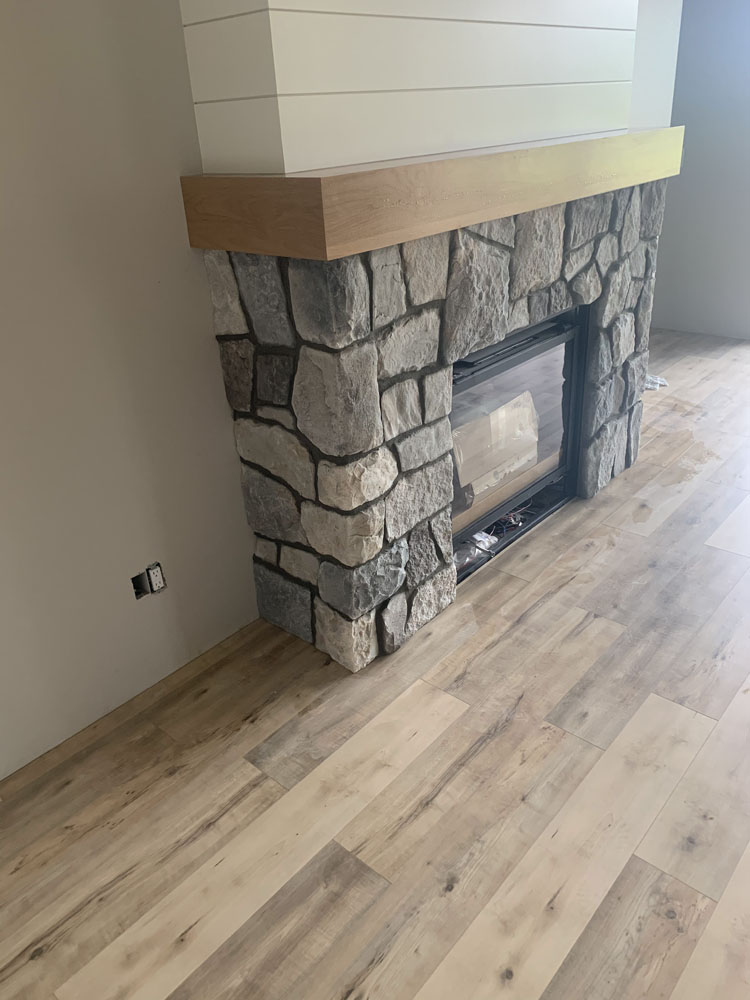Introduction
There's nothing quite like the comforting glow of a fire crackling in your living room, especially on a chilly evening. However, that warm hearth heavily relies on the integrity of your masonry chimney. A warm hearth starts with a healthy masonry chimney—repair it now! It's not just about aesthetics; it's about safety, efficiency, and ensuring that your home remains a sanctuary. This article will delve into why masonry chimney repair is essential, how to identify problems early, and what steps you can take to ensure your chimney is in tip-top shape.
The Importance of Masonry Chimneys
Masonry chimneys serve a vital function in homes that utilize wood or gas-fired appliances for heating. They facilitate the safe expulsion of smoke and gases, thus keeping your indoor air quality safe. But like any other structural component in your home, they require regular maintenance and repairs.
What Makes Masonry Chimneys Unique?
- Durability: Made from materials such as brick and mortar, masonry chimneys are built to last. Fire Resistance: They offer superior fire resistance compared to metal chimneys. Aesthetic Appeal: Their traditional look can enhance the overall charm of your home.
Signs Your Masonry Chimney Needs Repair
How can you tell if your chimney is experiencing issues? Here are some common signs:
Cracks and Gaps: Look for visible splits in the bricks or mortar. Water Damage: Stains on walls or ceilings near the chimney may indicate leaks. Rusty Flue Liner: If you see rust or corrosion in the flue liner, it's time for an inspection. Debris Buildup: Creosote buildup can pose serious fire hazards.Why Should You Address These Issues Immediately?
Ignoring these signs often leads to more severe problems down the road. For instance, water damage could compromise the entire structure, while creosote buildup could result in chimney fires.
Common Types of Masonry Chimney Problems
Understanding common issues can help homeowners take preventive measures.
Cracked Bricks and Mortar
Cracked bricks can allow moisture to seep into your chimney structure, leading to further degradation.
How Do You Fix Cracked Bricks?
- Use hydraulic cement to seal small cracks. For larger fissures, consider hiring professionals for comprehensive repairs.
Leaning Chimneys
A leaning chimney indicates structural issues that cannot be ignored.

What Causes Leaning?
- Settling foundations Inadequate support structures
Steps for Masonry Chimney Repair
If you've identified issues with your chimney, here's how to approach repairs effectively.
Step 1: Conduct an Inspection
Before anything else, conduct a thorough inspection of your chimney.
What Should You Look For?
- Signs of wear Condition of bricks and mortar Presence of animals or debris
Step 2: Clean Your Chimney Regularly
Cleaning helps prevent buildup that could lead to fires or blockages.
How Often Should You Clean It?
Experts recommend cleaning at least once a year before winter sets in.
DIY vs Professional Repairs: Which Is Better?
While some minor repairs may seem manageable as DIY projects, others require professional expertise.
Advantages of DIY Repairs
Cost Savings Immediate Action Personal SatisfactionDisadvantages of DIY Repairs
Potential for Mistakes Lack of Expertise Safety RisksWhen to Call a Professional for Masonry Chimney Repair?
If you're facing significant structural issues or if you're unsure about performing repairs yourself, it’s best to call a professional.
Questions to Ask When Hiring Professionals:
- Are you licensed? Can you provide references? What's included in your estimate?
The Role of Waterproofing in Maintaining Your Masonry Chimney
Waterproofing is crucial for maintaining the integrity of masonry chimneys by preventing moisture penetration.
Benefits of Waterproofing Your Chimney:
Extends lifespan Prevents mold growth Keeps interior spaces dryAnnual Maintenance Checklist for Your Masonry Chimney
Regular maintenance can go a long way toward ensuring https://pingdirapp41.directoryup.com/newberg/top-level-category-1/ramos-masonry-construction-company your chimney remains healthy.
| Task | Frequency | |------|-----------| | Inspect bricks and mortar | Annually | | Clean flue | Annually | | Check flashing | Every 6 months | | Examine crown | Annually |
Frequently Asked Questions (FAQs)
Q1: How much does masonry chimney repair cost?
The cost varies depending on the extent of damage but typically ranges from $300 to $5,000 or more for extensive work.
Q2: How long does it take to repair a masonry chimney?
Repairs generally take anywhere from one day to several weeks based on complexity and weather conditions.
Q3: Can I use my fireplace while waiting for repairs?
It's best not to use your fireplace until any necessary repairs have been completed to prevent potential hazards.
Q4: What materials are used in masonry chimney repair?
Common materials include brick, mortar mix, waterproof sealants, and sometimes stainless steel liners.
Q5: Is it necessary to have my chimney inspected even if I don’t use it often?
Yes! Even unused chimneys can develop issues over time due to weather exposure and animal intrusion.
Q6: What should I do if I notice smoke seeping into my home?
Immediately stop using your fireplace and contact a professional inspector as soon as possible!
Conclusion: Secure Your Home with Timely Repairs
In conclusion, remember that a warm hearth starts with a healthy masonry chimney—repair it now! Ignoring minor issues today can lead to costly damages tomorrow—not just financially but also concerning safety risks. Regular inspections and timely repairs not only ensure efficient operation but also keep your loved ones safe from harmful emissions and fire hazards associated with faulty chimneys. So don’t wait; address those cracks today!